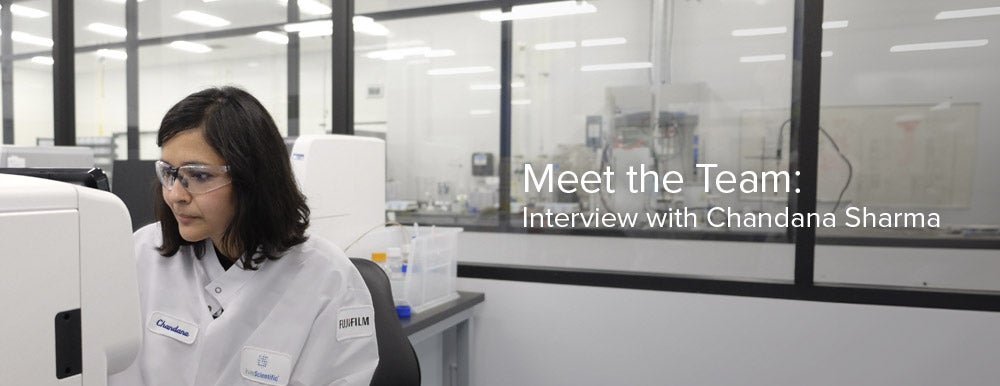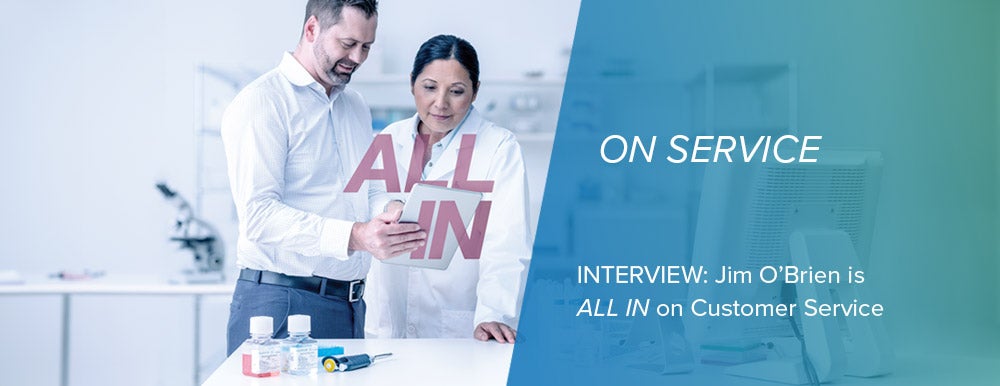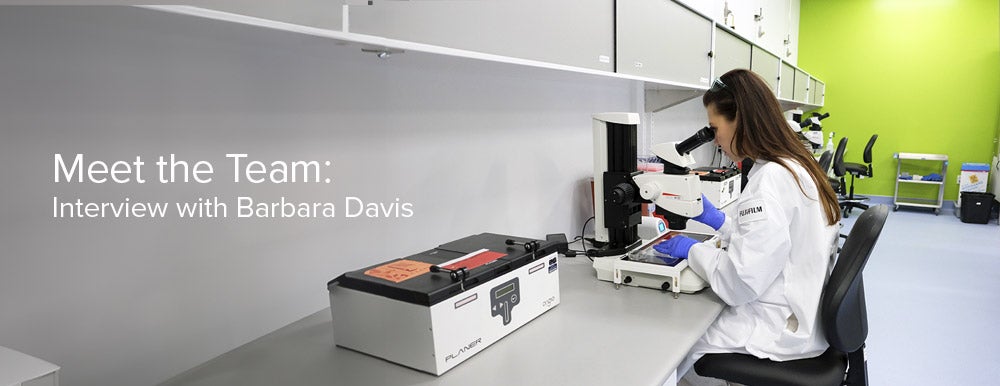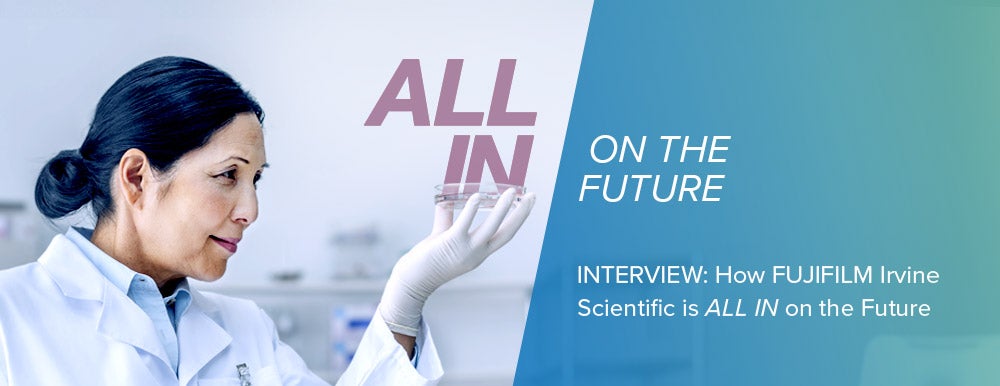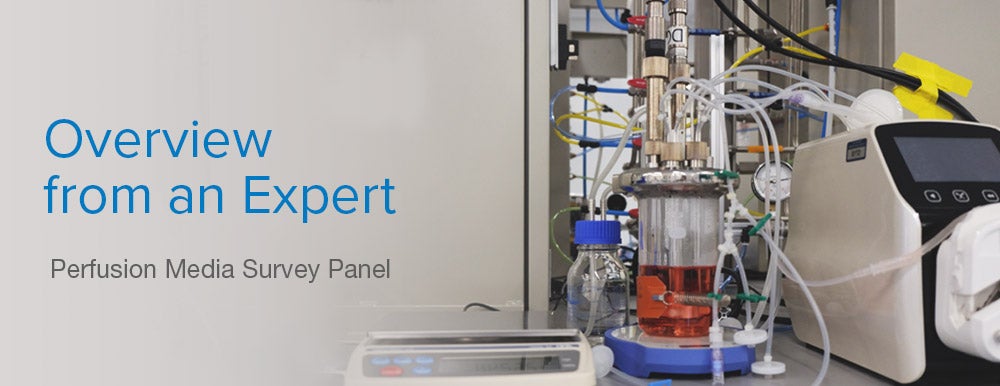We use cookies to make your experience better. To comply with the new e-Privacy directive, we need to ask for your consent to set the cookies. Learn more.
Media Development and Optimization for Your Custom Cell Culture Needs
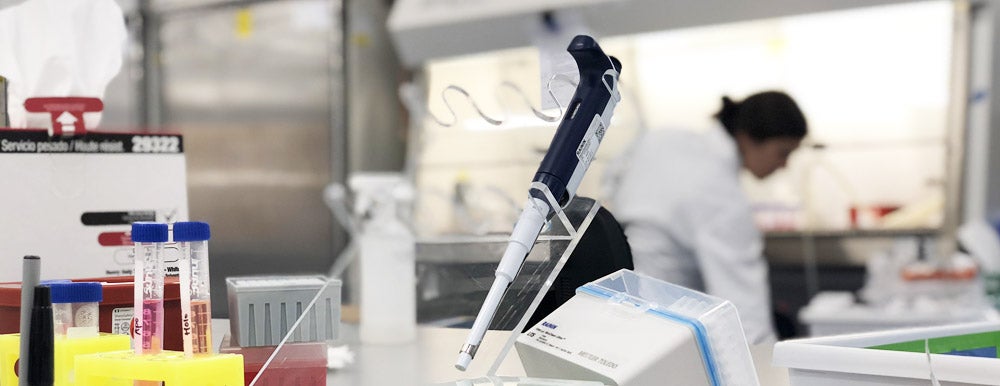
FUJIFILM Irvine Scientific discusses FAQ around custom media development
Custom cell culture media can be critical to optimizing bioproduction, and enable manufacturers to accomplish specific goals such as improved viability or increased titer that otherwise might not be optimally achieved with standard, off-the-shelf media. For our customers, the decision to create your custom formulation begins with an understanding of all the processes, goals, and milestones to expect along the road. FUJIFILM Irvine Scientific sat down with Luis Rodriguez, PhD, Senior Scientist II, and Catherine Nguyen, Scientist II, to discuss some of the questions asked by bioproduction manufacturers when they are considering media development services.
What is the purpose of the Media Development and Optimization (MDO) program?
Our customers have their own unique cell line, process, and goals for achieving metrics like certain titer requirements, product quality requirements, or reducing the amount of media and costs associated with the perfusion process. Through the FUJIFILM Irvine Scientific MDO program, we can help develop a custom medium for the customer that meets their requirements, and provide personal service, fast development time, and a high level of technical support.
When do customers turn to FUJIFILM Irvine Scientific for MDO?
Our customers turn to us when off-the-shelf, commercially available media, or proprietary media, are not achieving desired metrics such as improved cell growth, product yield, product quality, et cetera. Sometimes they want to start from scratch, or they want to start the optimization process with their own proprietary media.
What kind of issues can FUJIFILM Irvine Scientific R&D resolve with MDO? How do I know if MDO is right for my needs?
A custom medium can help customers achieve their desired bioproduction metrics. For example, our R&D scientists can develop a formulation to improve protein yield, achieve a certain product quality profile, or develop a platform medium for multiple clones. Customers consult with our field application specialists about goals, to help them determine if our MDO program is the right fit. These goals may include improved product quality through optimization of glycosylation, or increased efficiency of media specifically for perfusion. In the past, we have also performed projects targeting specific protein quality attributes such as charge variants, high and low molecular weight species, and aggregation.
How long does MDO take?
Depending on the project, MDO can take anywhere from eight weeks to six months. This depends on the number of formula iterations, and comprises numerous new media, and sometimes includes bioreactor verification. Of course, some projects require multiple rounds and sometimes we’re developing more than one medium for a customer, for example a growth and a feed medium, or different media for multiple clones. Additionally, we also offer two different options for MDO, which could affect the duration.
The first option is a Media Optimization Panel (MOP), where FUJIFILM Irvine Scientific develops panels of new custom media and the customer tests those panels at their own site. This approach is more flexible because the customer controls the timelines and dictates the pace of the project, testing when they want to, and then we analyze the data. This may include analyses of spent media, amino acids and vitamins, and nutrients and metabolites such as glucose, lactate, glutamine, and ammonia. We then analyze these data to look for trends based on the formulations, suggest next steps, and work with the customer to further improve the medium.
The second option is a Complete Service (CS), where the customer sends the cell line and additional materials needed by our R&D scientists, and FUJIFILM Irvine Scientific will design and perform all the experiments in-house, as well as conduct necessary spent media analyses to help fine-tune the design of subsequent media iterations based on what cells are using. This option is ideal for customers who don’t have much time or resources in their lab, or the expertise to manipulate the formula to respond to the data.
What benefits does a custom medium offer?
Think of a custom medium as being like a tailored suit, which fits perfectly compared to a merely adequate off-the-rack, commercially available suit. A custom medium is tailored to your cell lines and process requirements; it can help you to gain efficiency in production, reduce production costs, and get to market faster.
How is FUJIFILM Irvine Scientific different from other media manufacturers?
For 50 years, we’ve made it a top priority to accommodate each of our customer’s needs, and apply our media development expertise in the manufacture of cell culture media for processes like fed batch, perfusion, and gene and cell therapy. If a customer project requires us to establish new analytical methods, we do it while also striving to make our media user-friendly. For example, developing a medium that does not require pH or osmolality adjustments. FUJIFILM Irvine Scientific also provides an all-in-one solution, with the capabilities to go seamlessly from R&D media testing, to making larger prototype lots in Express Media Service, and then finally to scale-up to a cGMP facility. Even more, our customers have access to R&D scientists throughout the media development process; we believe that this level of collaboration is crucial for developing superior, custom media for our customers’ applications.
What are the cell types and equipment R&D have in the lab for media development?
R&D works with various cell types, including but not limited to CHO, HEK, T-cells, hybridoma, immune cells, mesenchymal stem cells, and many others. With a CS, the customer can send R&D their cell line and we will use it to conduct all the experiments in-house. R&D has equipment that is used for different analyses including but not limited to cell counters, U-HPLC for spent media analysis, Ambr® 15, scale-down models for bioreactors, benchtop bioreactors, protein quantification and protein quality machines, flow cytometers, IncuCyte, and many others. We have all the equipment necessary to conduct the Complete Service MDO in-house, thus facilitating seamless interaction between all the stakeholders in the MDO project.
How many R&D resources can you dedicate to each project?
Customer projects are one of our top priorities and with the rapid pace of an MDO, many different people will be working on each project. This is key for meeting our customers' needs with industry-leading delivery times with MDO.
What protocol do you follow to protect a custom formulation?
FUJIFILM Irvine Scientific has firewalls in place between internal R&D teams who work on custom formulas, those who work on product development, and manufacturing to protect your proprietary formulation. This applies to media we develop based on our proprietary media, or customer formulations we optimize or manufacture.
What if the medium doesn’t work? Are there guarantees?
We integrate different milestones into the MDO process that look at the feasibility of media development and meeting the customer’s goals. This allows us to make additional iterations or further analyses if needed. If the first phase/experiment demonstrates improvements in the media, as measured by previously agreed-upon metrics, customers typically proceed to the second phase. The project can also be ended at any time.
Do I get access to the R&D team, to talk through my issues?
Our R&D team is very transparent with our customers, and shares progress frequently during the MDO process. We’re always here to answer any questions that may come up during the MDO process, and give periodic updates during each experiment and through regular milestone conferences. At the end of the project, R&D assembles all the data for the customer and shares results in presentations and reports.
Contact a Media Specialist today to learn more about how our cell culture Media Development and Optimization services can elevate your bioproduction and cell therapy processes.




